Ancient Greece is one of the oldest and most progressed civilizations in the world. The ancient Greek civilization is a treasure of numerous factoids and information that will leave even a history professor bamboozled. From one-of-a-kind inventions like the world's first computer and the world's first ever vending machine to traditions and competitions still held around the world like the Olympics, ancient Greece has surely left its mark on the world.
Check out some facts about ancient Greeks that will leave you wondering how advanced they were even before their time and how they have paved the way for scientific advances made around the world even now.
The Yo-Yo
Apart from being known for the fact that the Greeks have the oldest languages in the world. Ancient Greece has many more such facts and inventions they can boast about. One of them being the yo-yo. What may sound as odd was actually invented in Greece.
The yo-yo actually dates back to 440 B.C.E. and was considered one of the oldest toys in the world. It was a part of every child's toybox and was one of the most common toys for kids in every house. It was originally made using wood and metal or painted terracotta disks. It was decorated with images from the Greek Pantheon. Who knew that what we see so commonly made out of plastic with lights actually has such a rich history and dates back to 440 B.C.E?
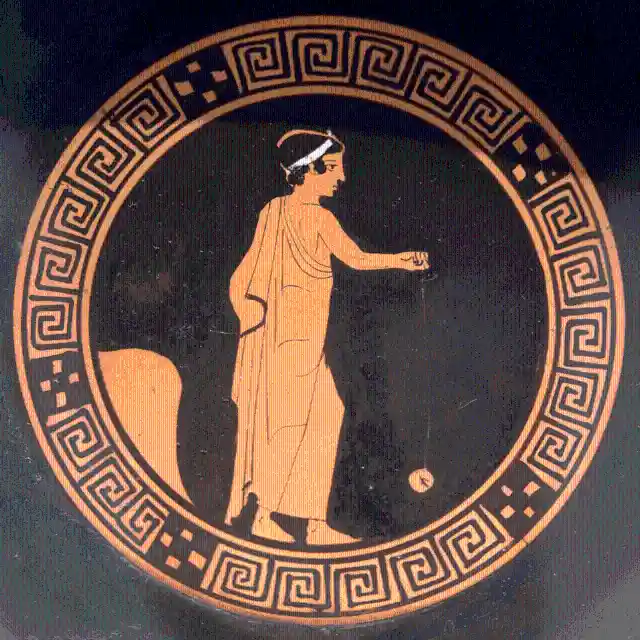
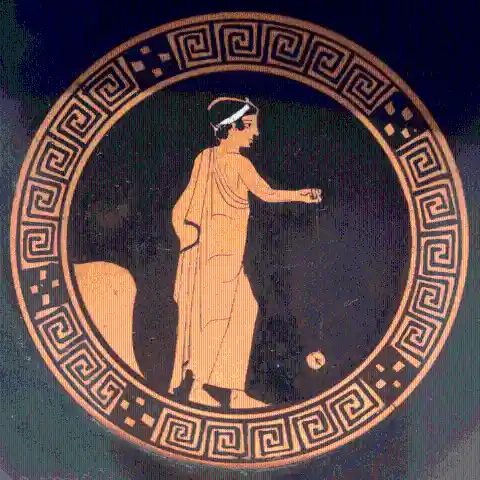
Oldest Scripts in the world
As discussed before, Greek is one of the oldest languages in the world. The Greek alphabet was invented at the beginning of the 8th century B.C.E. Isn't it astounding to have a language that dates back centuries and still hasn't lost its importance? Most of the important works and seminal texts, such as Poems of Illiad, and the works of Aristotle and Plato, were originally written in Greek.
According to sources, Latin, Armenian, Coptic and Cyrillic writing systems all originated from the Greek language. The greek alphabet was also the first in history to feature distinguishable letters for vowels.


Dionysus
One of the most popularly worshipped gods in ancient Greek mythology is Dionysus ( also known as Bacchus ). He, along with a dementor, was considered to be the supreme deity of Earth. According to legends, it is said that he took birth out of a fire.
Dionysus was affectionately known as the 'God of Wine' and also the god of the grape harvest, vegetation, fertility, insanity, ritual madness, religious ecstasy, festivity and Theatre. In honour of Dionysus, several tragic and comic plays used to be organized.
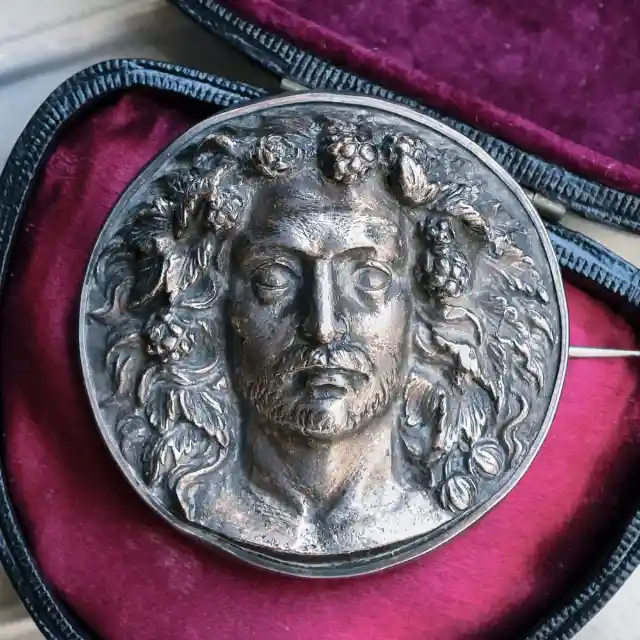
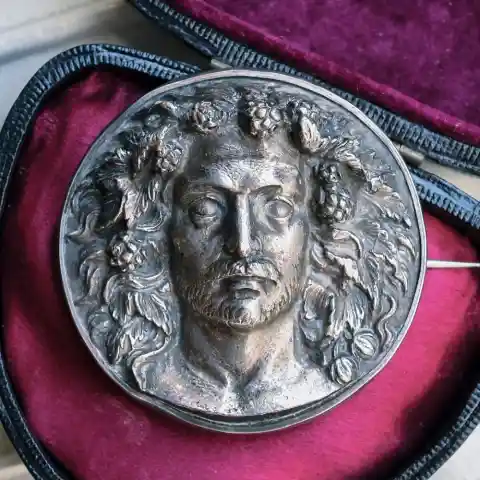
Not strong enough
According to an immensely popular Spartan myth brought to light by the ancient Greek historian Plutarch which was that after a baby was born, it was immediately inspected by officials and if found to be weak, small, premature, disabled, ill or even having blemishes, the baby was judged to be unfit for its future duty as a soldier and was tossed into a pit. Imagine how hard that must've been for a mother.
Even though the myth was deemed redundant and not true by current historians and scientists, it is surely bone-chilling enough to make anyone wonder how ruthless the situation must be for the parents.


Greek god's supremacy
According to Greek mythology, Zeus is believed to be the head deity of the Greek Pantheon. However, it is not entirely true because ancient Greece was divided into numerous independent states, with the polis having its own separate cult.
The notion of henotheism, which involves worshipping one deity from the Pantheon of gods but not rejecting the existence of other gods, was practised by the ancient Greeks, who strongly believed in the 'n' number of gods.


Not very ethical
You know how in movies we see that the hero does no wrong? It wasn't the same case with Greek heroes and figures. Many of the heroes and figures of ancient Greece committed terrible crimes and did some pretty messed up things. Even the kindest heroes occasionally committed horrific crimes, and the Pantheon of gods was not excluded from this claim either. While gods like Jason, Athena, Zeus, Hades, and Uranus committed some very horrible crimes, mortals weren't far behind.
For example, Achilles, the hero of the Trojan war, abandoned his group of friends to die after having an argument with them in the middle of the Trojan war. And even Heracles was known to have multiple love partners apart from having four wives.
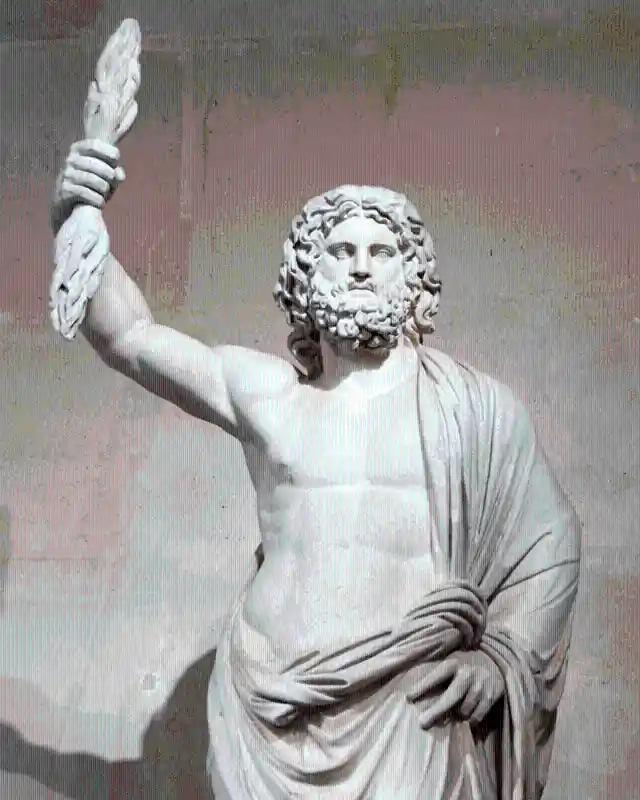
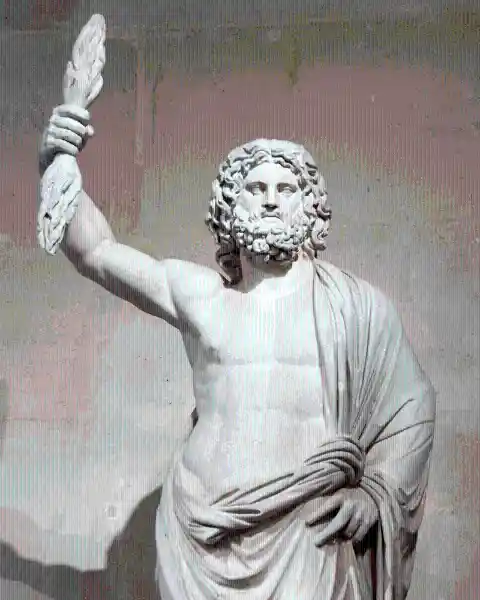
Food with no taste
This point surely is an interesting factoid, but it definitely makes our hearts ache as food lovers. The ancient Greek food, also known as Laconian food, was quite unappetizing and made even the hungriest man alive feel okay for not having food if this was an option. One of their regular meals comprised black gruel, which was made as a mixture of lentils and was cooked in beef blood. Yes, you heard that right, beef blood.
This dish, without a doubt, had multiple jokes surrounding its unappetizing looks and taste, one of them being how only a real true Spartan had the courage to eat this on a daily basis. And even though this was meant as a joke, we still stand by it.


Hetaeras
Well, women have always had to face discrimination in every age and culture, the same was the case with women in ancient Greece. The women in ancient Greece were deemed as second-rate citizens and had to endure a lower status than the men folk. But there were certain women who were independent in their own right; these women were Hetaeras.
Hetaeras were essentially high-profile prostitutes who also participated in mind-stimulating activities to entertain their partners. They had fewer but wealthy lovers than Pornai, which was another class of escorts in ancient Greece. A woman had to attend a special school from the time she was a little child in order to become a Heatera.


Eating and dining in style
According to certain sources and legends, Greeks preferred to recline while eating food. This style and way of eating were later adopted by the Romans in the 7th B.C.
It is said that the Greeks ate food while lying down, as doing so represented their social position and authority. However, the only people who could recline while having food were men. In general, women were not permitted at the feasts, and when they were permitted, it was customary for them to eat while seated straight. This was because, as discussed earlier, women were considered second-rate citizens in Ancient Greece.
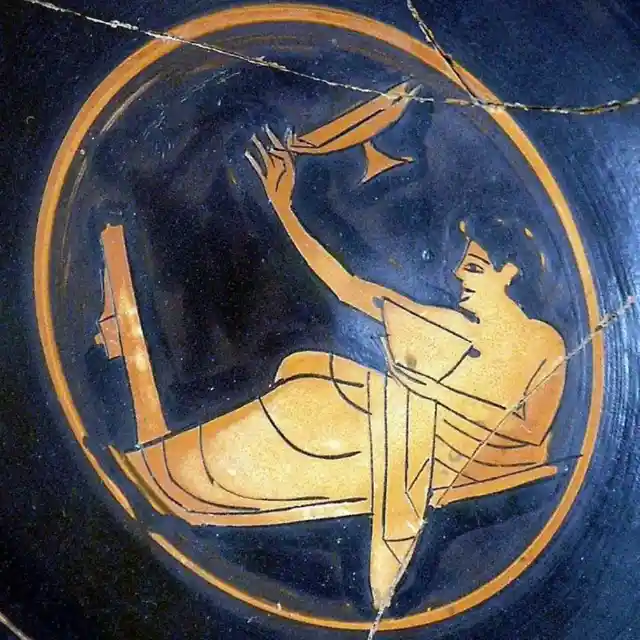
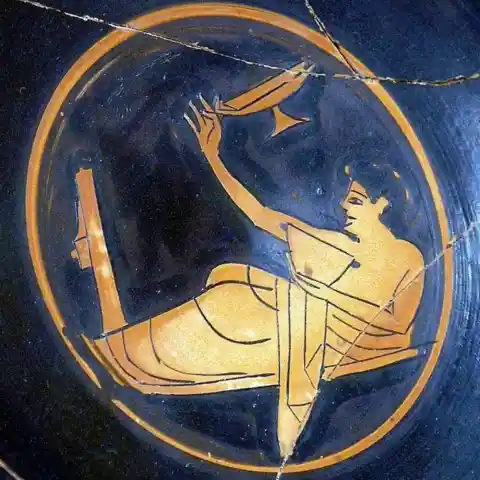
Oops, I made a mess
The ancient Greeks weren't very clean people per se. They did not adhere to the notion that cleanliness is next to godliness or that their homes should be like Marie's Kondo. They enjoyed keeping their surroundings as filthy as possible. The black smoke that used to come out when they prepared meat for their meals on a regular basis usually discoloured the walls of their house.
The soot destroying the weapons hanging on the walls of a typical Greek home is described in Horner's poem. In a word, black walls were typical in the typical home back then.
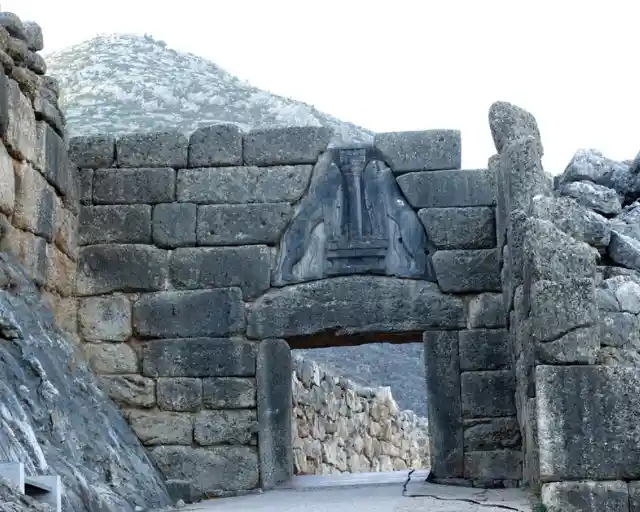

A fight to survive
The lives of kids since babies were not easy in Ancient Greece. From being thrown in the pit if you didn't pass the examination to being strong enough to be raised as a Spartan, it was always a long, difficult road. Spartans had a reputation for being really strict with their kids. They had a somewhat authoritarian approach to parenting. When a Spartan kid reached the age of seven, he was sent to a special military camp for training.
A Spartan kid had to survive naked up until the age of twelve as they were not allowed to wear clothes till then. They were also expected to prepare their own meals and be skilled in swordsmanship, spear-throwing, and physical conditioning.
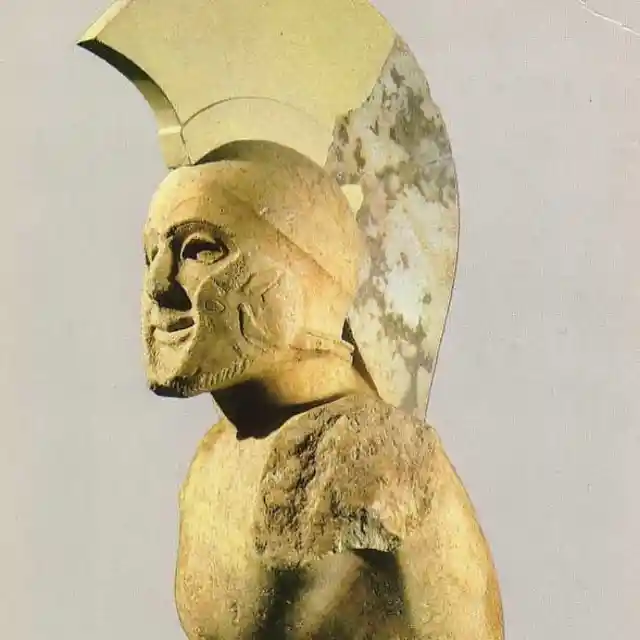
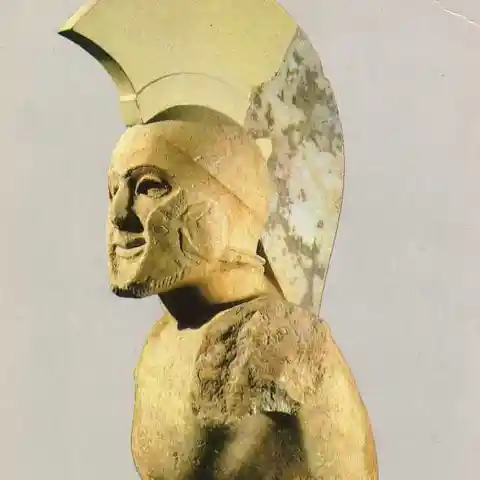
The struggles of being a woman
Women were not permitted to watch or take part in the Olympics in ancient Greece, which comes to us as no surprise as they were regarded as second-class citizens back then. Thus, the Olympics were largely a male domain. Historians have proposed numerous potential explanations for this exclusion, some of them being.
The inferior status of women in ancient Greek culture and the extensive and lengthy preparation (up to ten months) needed to get ready for the Olympics. These are the possible justifications given by some historians.
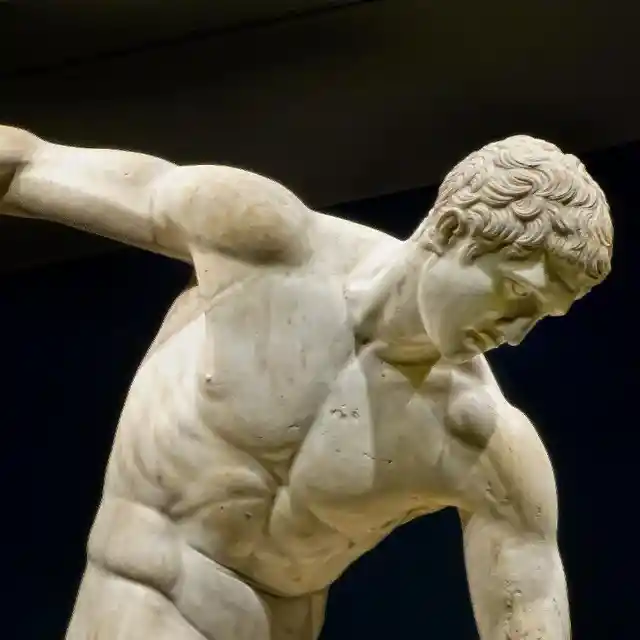
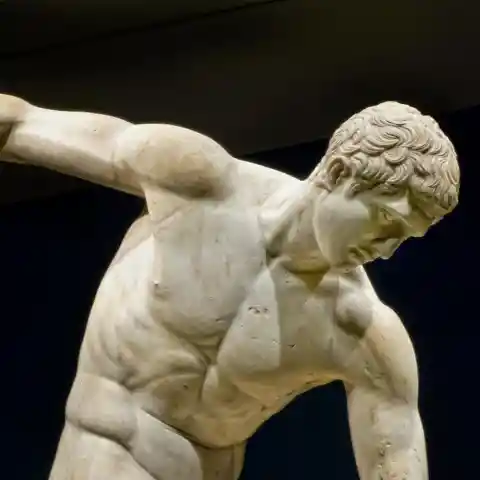
Simple food-only
Delicacies were strictly forbidden in Spartan households in ancient Greece. Keep in mind the Spartan favorite lentils laced with beef blood we saw earlier. That was typical and a go-to meal in a Spartan household. To put it kindly, a Spartan supper was a simple affair and didn't need much appetizing.
Lentil soup or gruel of barley with cabbage and turnips was a typical Spartan supper. According to Homer, Spartans enjoyed eating meals made of grains and frequently consumed barley together with wine and goat cheese.


Symposiums
Symposiums were another predominantly male-dominated setting in ancient Greece that included bacchanalian celebrations etc. These 'exclusively male 'banquets were filled with performances of dancing, music, and other types of festivity.
A symposiarch was a person that served as the event's in charge for the evening and also the one who presided over a symposium. In this social setting, games with competitive elements were also organized. But the word "symposium" has now come to mean a scholarly gathering.
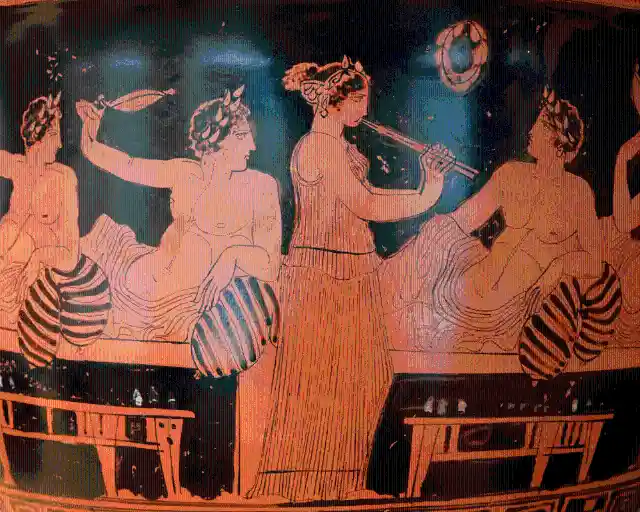
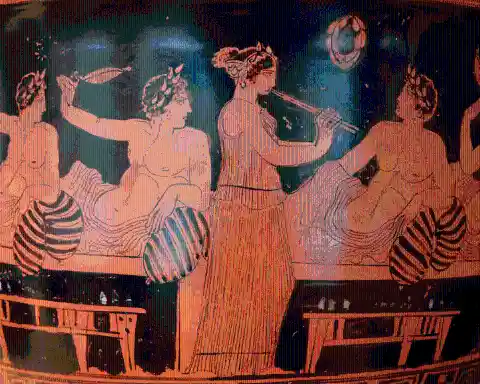
The best dressed
Spartans, apart from being survivors and strong men, were also very skilled in dressing for battle. When going to a battle, they carried a lot of supplies and safety gear, and before engaging in combat, a Spartan soldier, also known as a hoplite, wore a massive bronze helmet, ankle guards, and a breastplate for protection.
In addition to that, they used to have a long spear, a sword, and a spherical shield made mostly of wood and bronze. As seen in the film 300, Spartan soldiers frequently had long hair and wore a red cloak as their primary clothing.
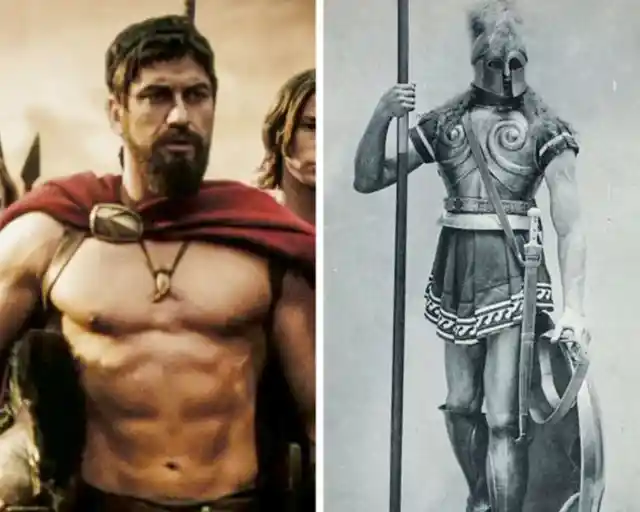
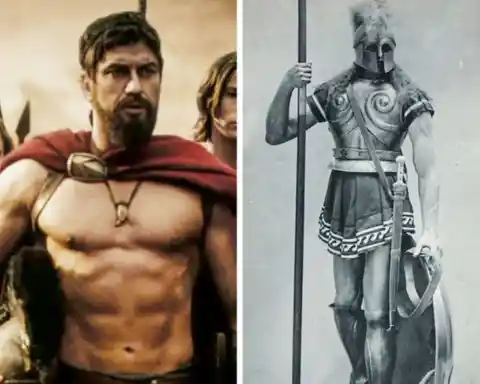
No fights, please! Truce?
The Olympics was always a happy and cheerful time for everyone in ancient times. All armed conflicts in ancient Greece came to an end or were at least delayed by three months with the start of the Olympics. The Olympic Truce tradition dates back to 776 BC and was instituted to protect the host city from attack during the Olympic Games.
Additionally, it was a necessary measure, too, as it made it possible for guests to travel safely to the venue of the games without having to worry about any life-threatening situations. It is said that despite the truce, wars still broke out during that period, but it was surely not in the Olympic region.
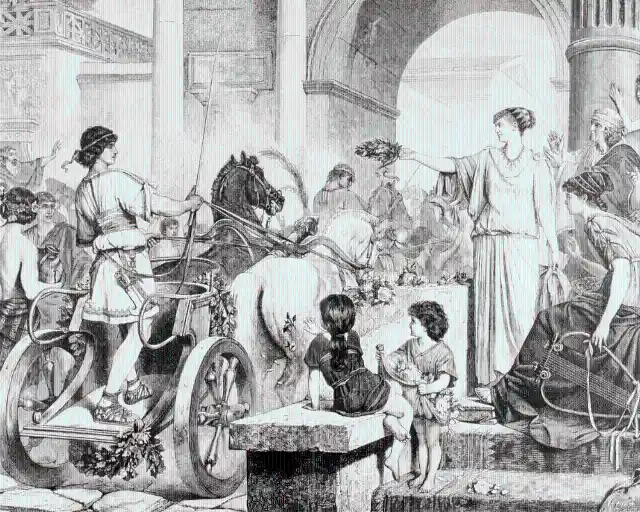
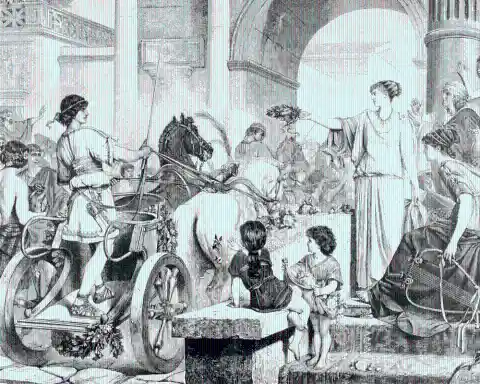
War and love
The Spartans are known as people who had an immense amount of courage, endurance, and self-control. The 300 Spartans, which is now immortalized in popular culture, with the movie of the same name, was based on the Battle of Thermopylae.
The Sacred Band of Thebes defeated the challenging Spartans during the battle of Thermopylae. The group, which was made up of 150 men, all of whom were lovers and not soldiers, brought an end to Spartan's dominance. The Battle of Leuctra in 371 B.C. brought the band to fame. What was ironic about the Spartan's defeat in the battle of Thermopylae was that even though the Spartans were known for their strength and courage, they were defeated by men who were just lovers.
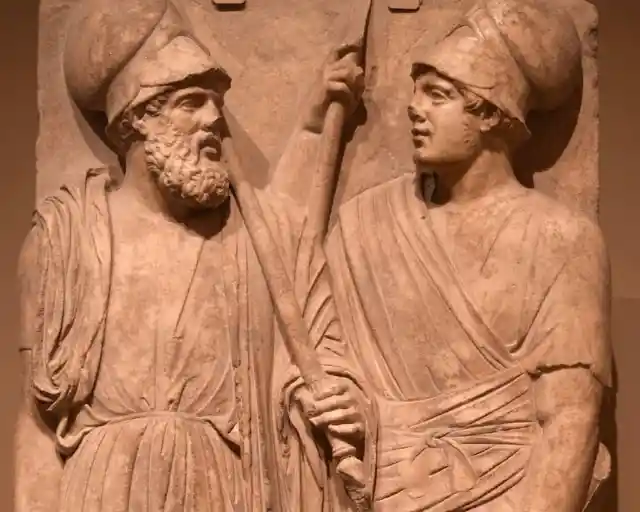
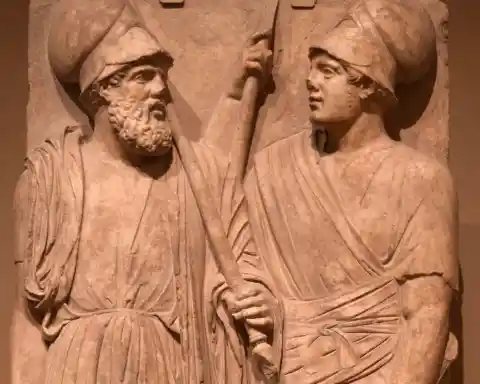
Rhodopis or Cinderella?
Here is a fact one would have never imagined coming across while talking about ancient Greece. Rhodopis was a famous hetaera in ancient Greek culture. Her story inspired every girl's dream fairytale, Cinderella.
According to legend, an eagle grabbed Rhodopis' slippers while she was taking a bath and immediately dropped them upon the lap of an Egyptian pharaoh. The Pharaoh was so taken with the slippers that he made the decision to send out a search team to find its owner. He located Rhodopis after searching. They eventually got hitched, and Rhodopis ended up ruling Egypt.
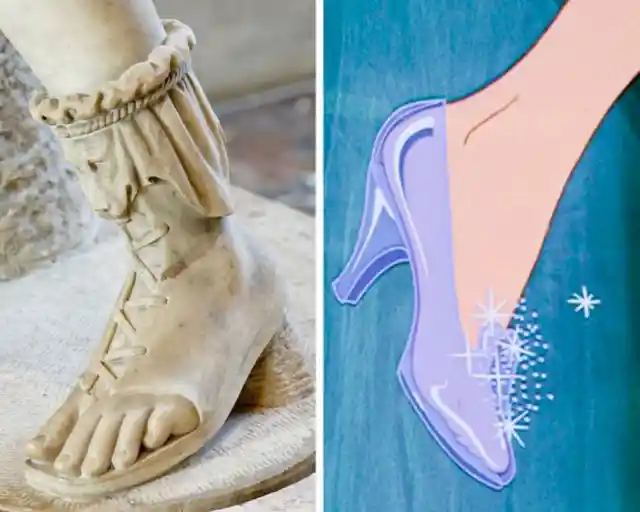
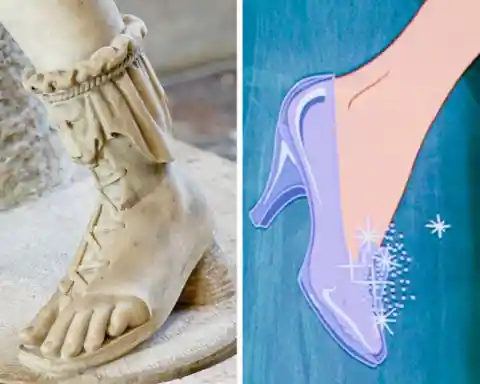
Am I a woman or an object?
Apart from being referred to as second-grade citizens, it doesn't come as a surprise that women were considered mere objects or pollutants in ancient Greece. They were completely dependent on their husband and had no freedom or rights of their own. A woman was seen as the object of a man's home in Athens; hence a woman's personhood and entity were entirely denied in ancient Greece.
They were urged to stay inside the four walls of their homes and were warned against going out on their own. To use a married woman's name in a public setting was also viewed as blasphemy.


A well-paying job
In comparison to other civilizations, the ancient Greeks received generous pay each month. Ancient Greece reached the height of global economic development between the fourth and fifth centuries B.C.E.
The salaries of regular people showed signs of economic improvement. As during that time, an average Greek individual made 12 kg of wheat. This was roughly four times more than the typical Roman's monthly wage of 3.75 kg of wheat.
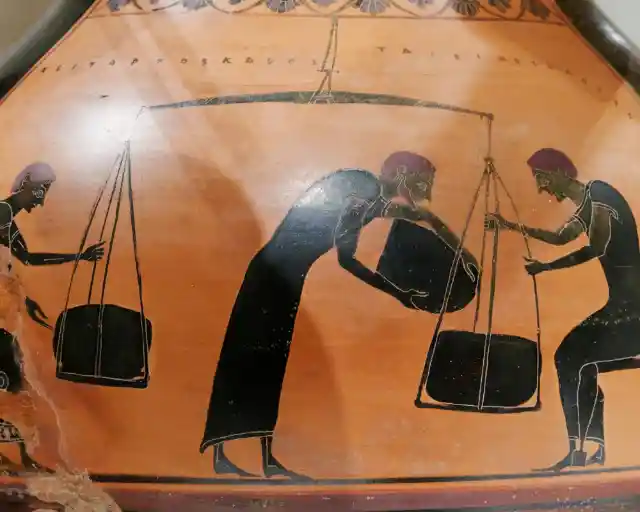
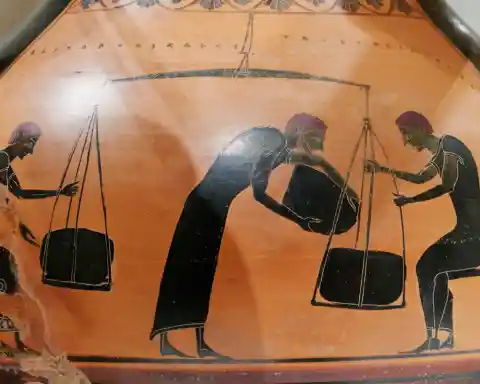
A Spartan woman's life
Even though the condition of women in ancient Greece was quite terrible, they were only considered second-grade citizens and mere objects. The women of Sparta were a tad bit more liberated than the other women of Greece. They enjoyed certain privileges and freedom that the other women of Greece were repeatedly denied.
A woman in Sparta could own her own land and engage in sports. They were also educated and could survive as independent individuals. Even though they had to undertake household tasks and other domestic chores, they had their own spaces of freedom, unlike their male Greek counterparts, who enjoyed this freedom regardless of any such conditions.


Life after marriage
Arranged marriages were customary in Sparta. There weren't many love marriages but again, the majority of these marriages were fictitious as the men usually had multiple partners at one time. It was ordinary to cheat on your spouse as women were completely dependent on their husbands and hence had to endure all the ill practices committed by the husbands.
Ironically, Spartans who chose to stay unmarried faced severe punishment. When the Sparta men reached a certain age, there was legal machinery in place to force them into marriage. Those who chose to get married later were also not exempt.
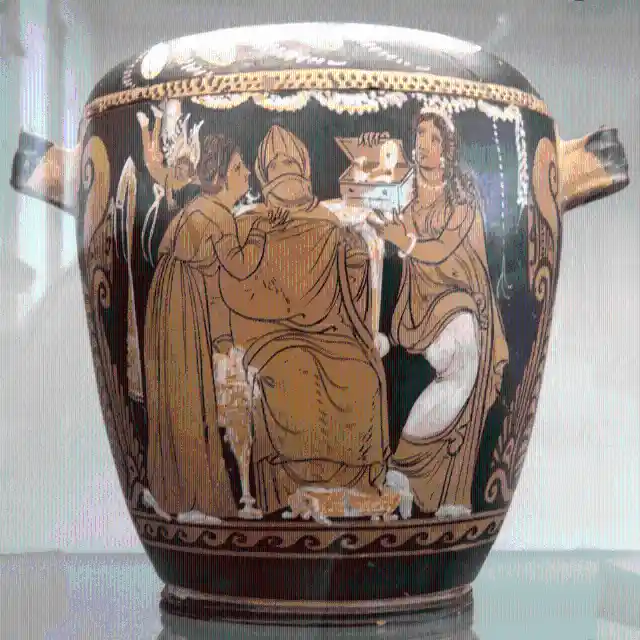
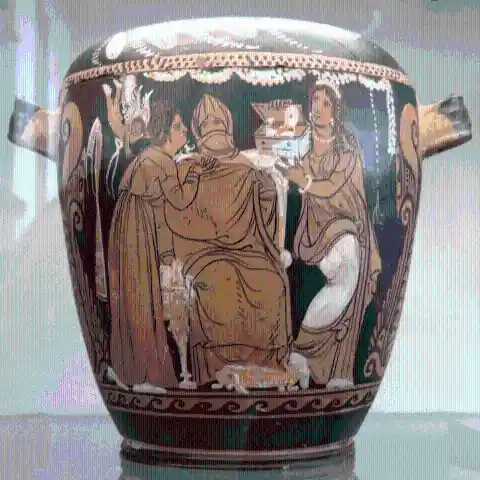
A loophole
Even though women were not generally permitted to participate in or watch the Olympics, there was a small loophole that allowed their entry on horses in the Equestrian games.
The Spartan Princess Cynisca took advantage of this provision to win the competition without even taking part in it, making history for women in ancient Greece. With two first-place finishes from her horses in the competition in 396 and 392 BCE, Cynisca was unquestionably victorious and a true rebel in the fight for women's rights.
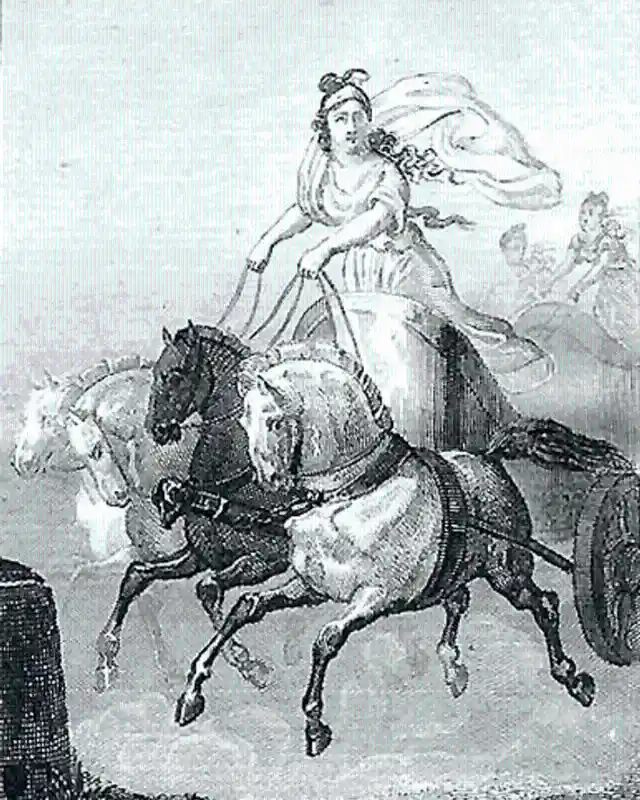
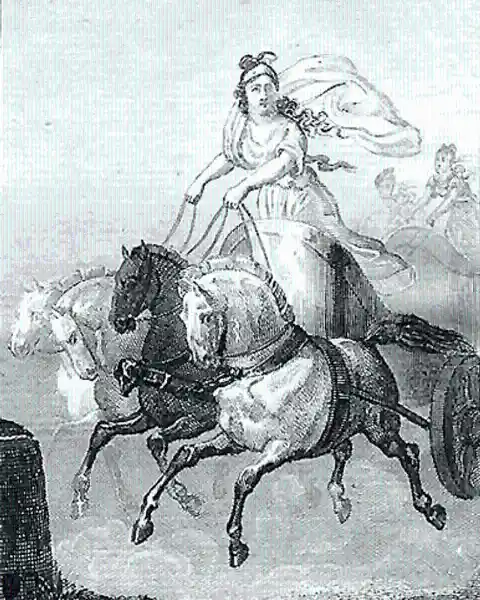
The worth of salt
Similar to their Roman counterparts, the Greeks traded with salt. The practice of purchasing slaves in return for salt was common. They also adhered to the saying that 'you shouldn't trust a man until you've shared a salt peck with him'.
They also adhered to the saying that 'you shouldn't trust a man until you've shared a salt peck with him'. . The Greeks are also famously known and credited for the invention of the expression "not worth his salt". Apart from using salt as a trade token, they also utilized salt to create soaps and detergents from animal fats and ashes.
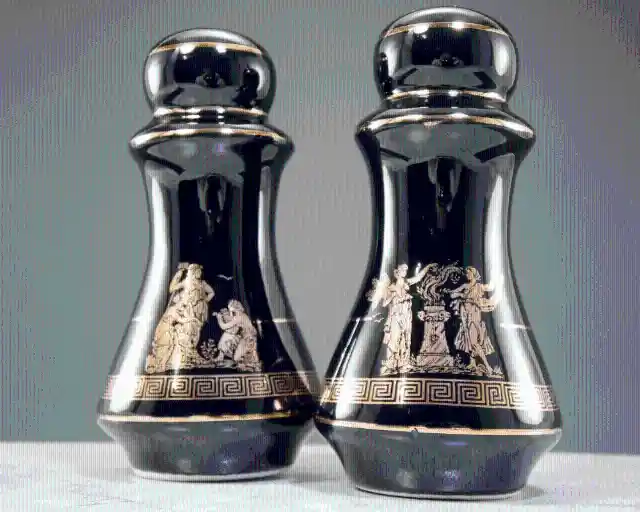
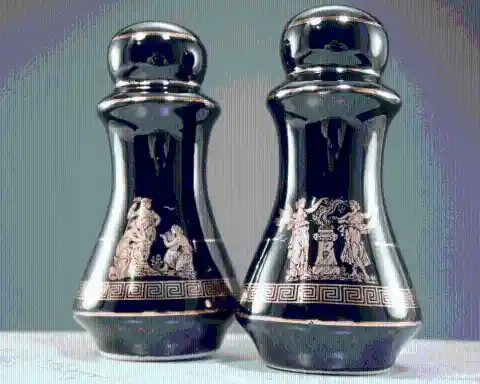
The Olympiad
The Olympiad was a significant event in classic Greek culture. It was an event that was eagerly anticipated and was well-attended. The Olympics were so cherished by the ancient Greeks that they centred their social calendars around them.
The event took place in July or August once every four years. As was previously mentioned, the Olympiad was followed by an Olympic truce, a proclamation of peace that gave the conflict in the host country a three-month reprieve. It's amazing to see how the Olympics are still a highly celebrated event in the world.


Let's shake hands
The way that people greet each other around the world was somewhat revolutionized by the Greeks. They gifted handshakes to everyone around the globe. Yes, the handshake was invented by the Greeks, as indicated by the numerous ancient Greek paintings, sculptures, and works of art.
However, in ancient Greek, the act of shaking hands was known as Dexiosis. Many pieces of art depict Hera and Athena, the Greek Goddess of Wisdom, shaking hands. However, handshakes were only exchanged between equals in ancient Greece.
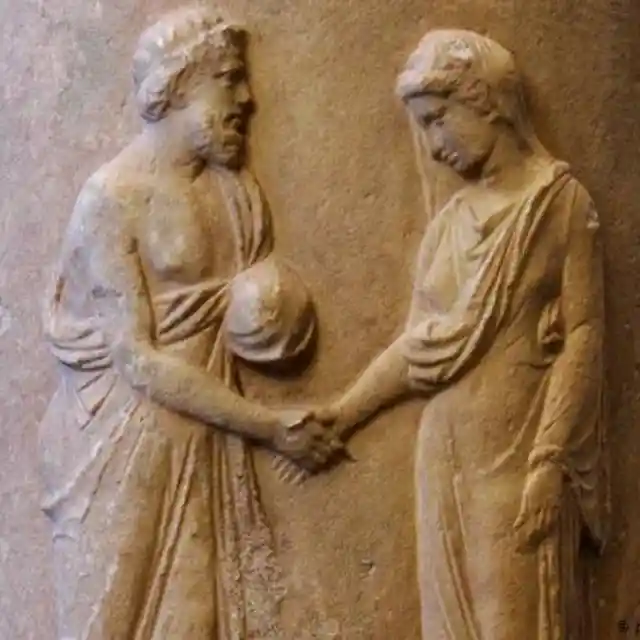
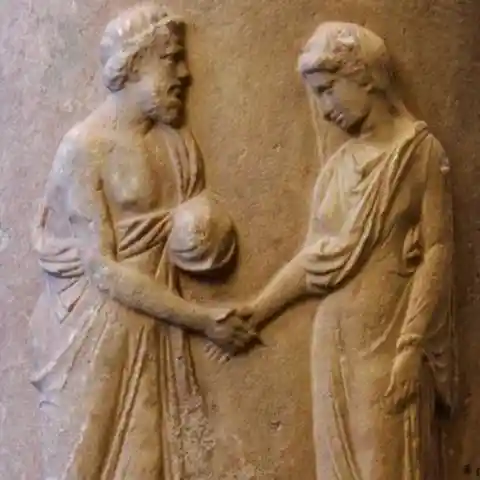
Fashion-forward
Greek ladies have always been very fashion-forward. Even though statement brows and unibrows are now made popular by Cara Delevingne. The Greek ladies were the pioneers of what is now a dominant fashion trend.
In ancient Greece, unibrows symbolized a mark of intellect and ideal beauty. Women without unibrows used to mimic them with makeup. They used to try to create the appearance of a single brow by using soot, black powder, or goat hair.
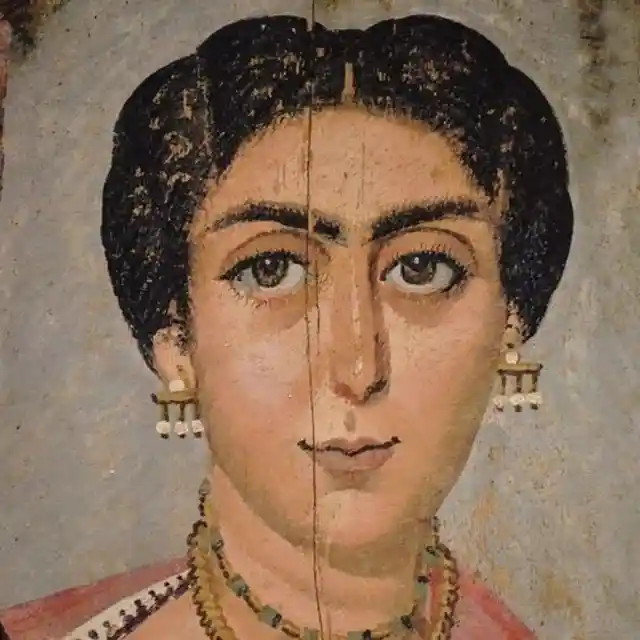
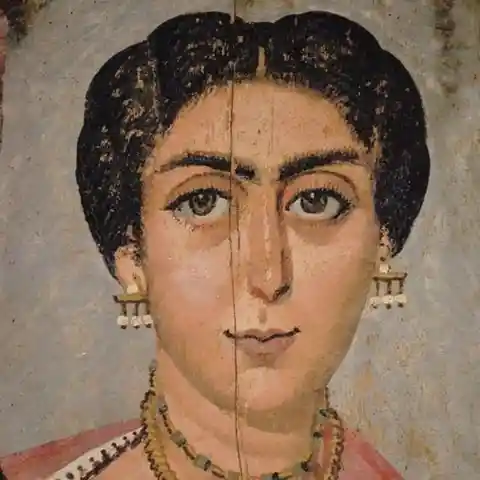
Nap-time
The ancient Greeks, apart from being courageous and tough, were also leisurely. They believed that a nap in the afternoon was restorative. their afternoon naps, which were especially popular in the summer.
The Greeks thought a mid-afternoon nap might keep their body from drying up. The Greeks used to wake up from their naps, eat something, and continue working until nightfall. If you ask us, this is a tradition that we can wholeheartedly follow if someone explained to our moms that taking a nap in the afternoon isn't a sign of laziness.
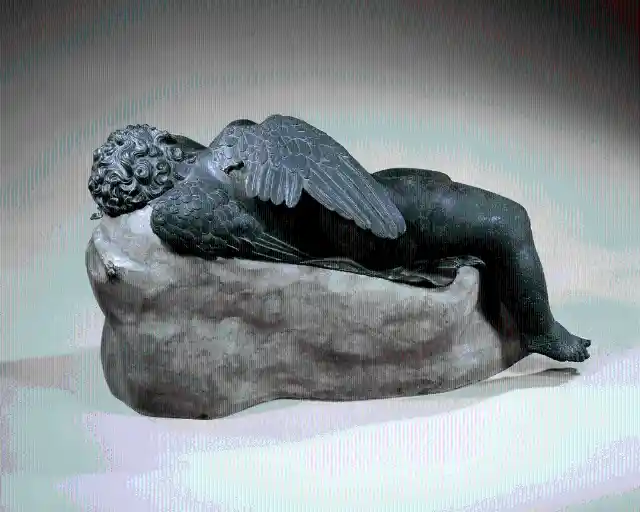

You Idiot
The Greek term "idiōtēs," which means a private person, is where the word "idiot" gets its etymological origin. The word was first introduced in an entirely different environment and context. In its original usage, the word was meant to describe anyone who avoided politics.
Even though the term idiot is now used for people with a "poor level of intelligence". If you're clever, you'll see the connection between its previous and present meanings and understand the point it is attempting to make.


Music to my ears
Apart from giving the world cheesecake and Theatre, the Greeks also gave us the gift of music. If not in terms of sound, but definitely in the written form. The Greek mythological goddess of the arts, the Muses, is where the word "music" originates from.
Western music's theory and composition have their roots in the music of ancient Greece. Prominent philosophers like Pythagoras also studied it to gain an understanding of other areas of life.
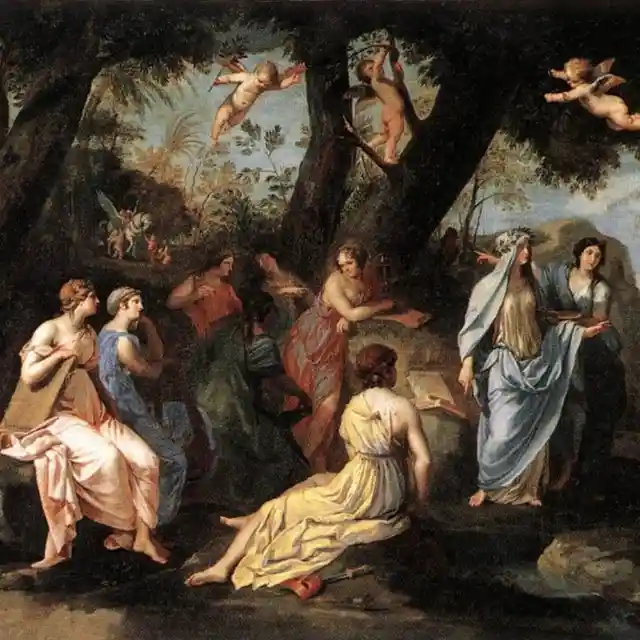
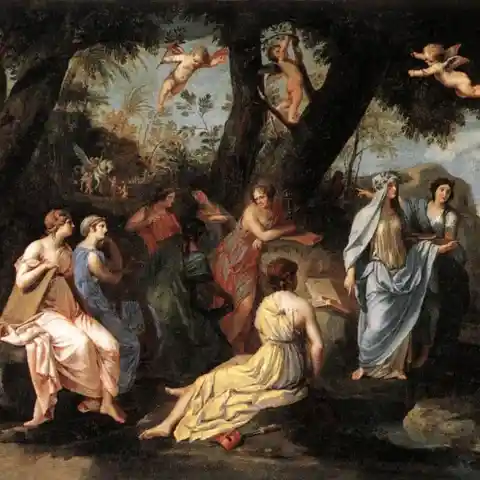
Will you marry me?
Depending on how you look at it, the manner of proposing to someone in ancient Greece was both sweet and subtly aggressive. Greeks threw apples at people to beg for their hand in marriage in ancient times. Well, that's quite a peculiar way to put a ring on it in Beyonce's world.
These apples, in some cases, turned into a source of conflict. A lifetime of wealth was wished for wedded couples by tossing apples their way as well. Unrelated to this, before Newton gave us the theories of relativity, he was struck by an apple. Maybe the universe was confessing its love for him in order to solve the mystery of gravity.
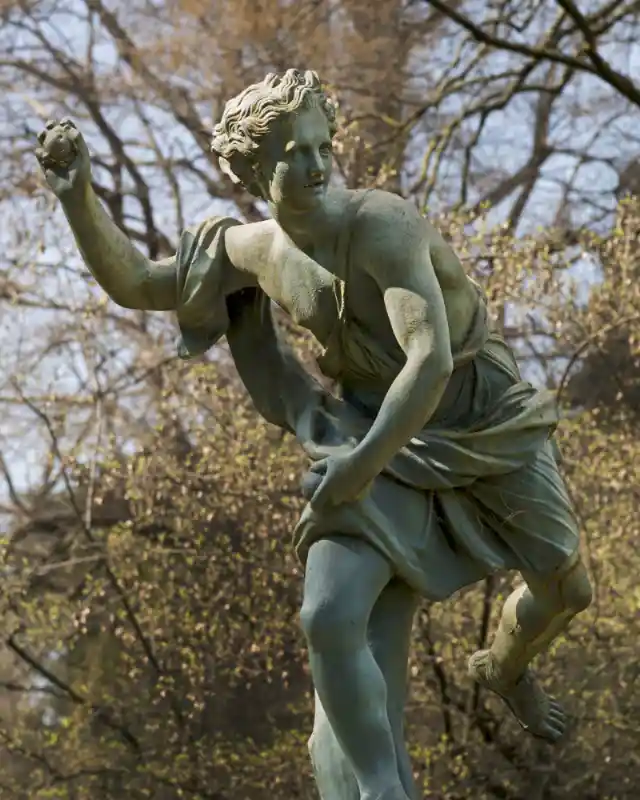
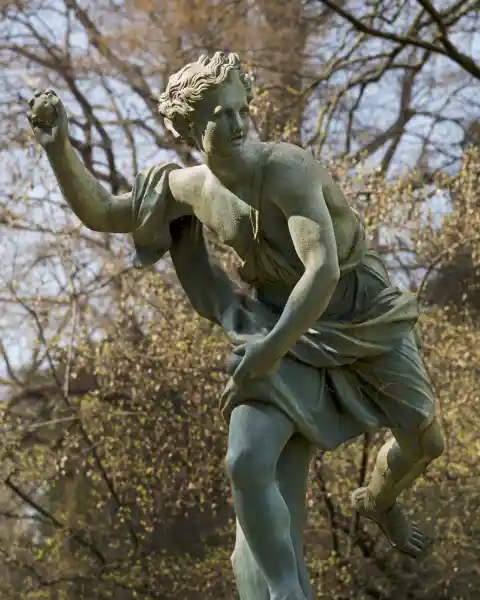
Potbellies are the new abs
Everyone is going to want to be transported to ancient Greece after this factoid. Forget about the washboard abs, iron-pumped body and musculature. In ancient Greece, having a pot belly was considered to be a legitimate physical type and shape rather than just extra body fat. A potbelly wasn't a sign of gluttony or sloth either.
In actuality, people with potbellies were seen as excellent leaders. If potbellies were wanted in ancient times, then we don't mind being transported to the past. Rather, let's order a large fries and burger meal.
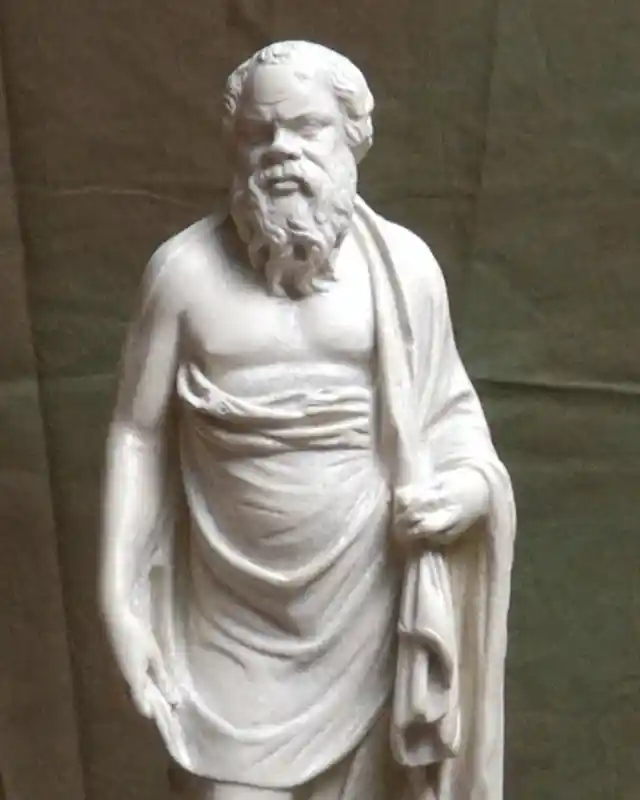

Oh Spike me
The first ever spiked dog collars were made by the Greeks in ancient times. Even though the Egyptians provided the initial prototype for dog collars, the Greeks were responsible for its practical perfection.
When defending the flock of sheep in ancient Greece, the sheepdogs on the farm wore these spiked dog collars, also known as mellium, to prevent wolf attacks on their necks. It appears to have been a need-based invention to defend the dogs from the frequent wolf assaults on the farm's animals.


May you live long
Many people in ancient Greece lived to be 100 years old. They had long lives because they followed a nutritious Mediterranean diet, engaged in vigorous daily exercise, and had excellent sanitation systems.
According to the Greek concept of the Mediterranean diet, enough fruits, vegetables, and olive oil, also known as the "elixir of life", was required to be consumed. It was claimed to have a wide range of positive effects on the body, including a decreased chance of Parkinson's disease, enhanced longevity, and Alzheimer's.
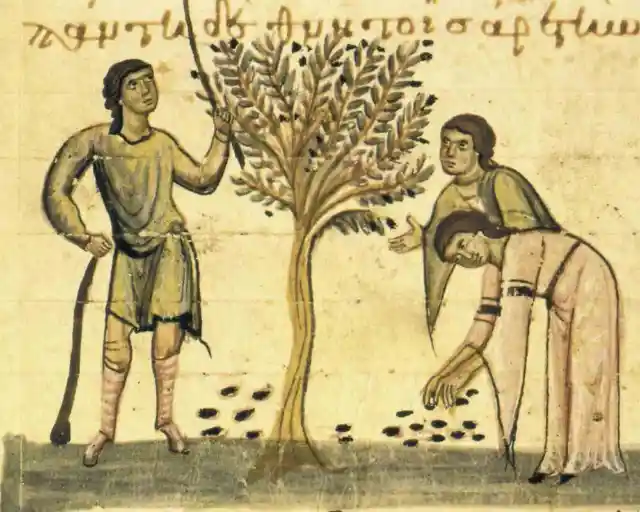
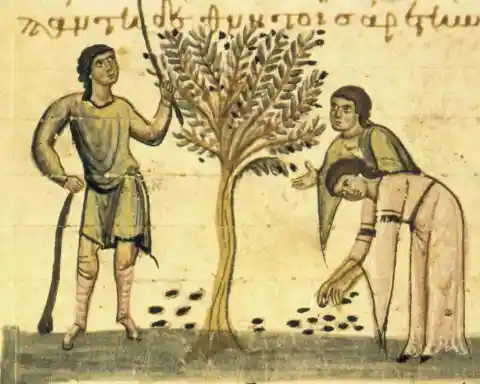
The Red lipstick
Red lipstick, which was created in ancient Greece from crocodile excreta and red pigments, was only worn by specific types of women. Only the escorts were legally permitted to wear this colour. Soon the flesh trade quickly learnt to recognize this tint.
According to Greek law, any other lady besides the escorts who wore red lipstick could face punishment for engaging in obscene behaviour by wearing red lipstick in public. Similarly, if the escorts abstained from donning the official red colour in their line of work, they could be punished too.
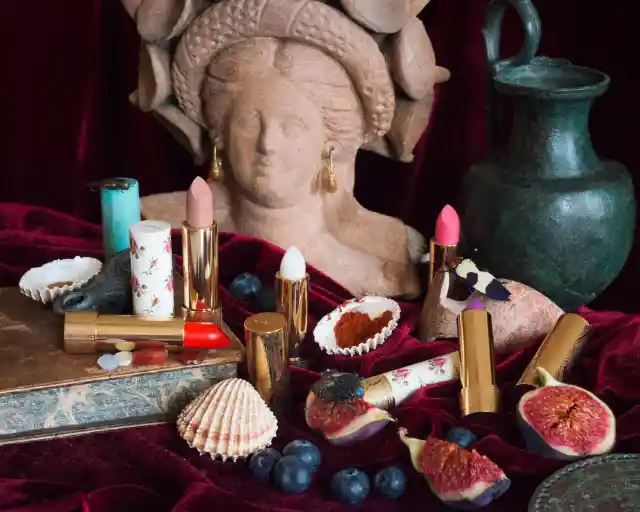
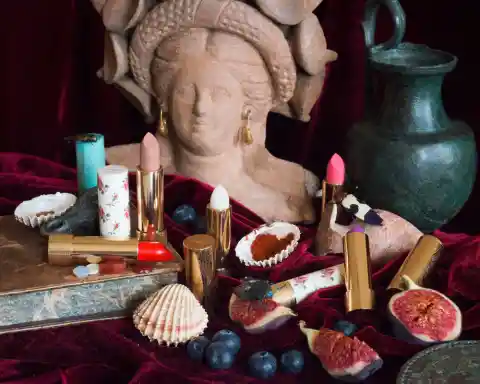
The Boustrophedon text
Writing in both directions on manuscripts was a common practice in ancient Greece. This meant that the next line of the book would be written from right to left after a line that was written from left to right.
It required mirroring letters from one line to another, which made it much more challenging and perplexing for the author and the reader. For instance: I love all things about Greece. Greece about things all love I.


Not your regular vending machines
Another invention that we are sure you couldn't have guessed that was actually made in Greece was a Vending machine. Yes, the world's first vending machine was created by the ancient Greeks, but instead of soda and snacks, Holy water used to be distributed through a coin-operated vending machine. Holy water used to be distributed through a coin-operated vending machine.
According to academics, this vending machine was a development from the Greek civilization, which was one of the first civilizations to use coins. Ultimately, it ended up serving as the model for all contemporary vending machines we see today.
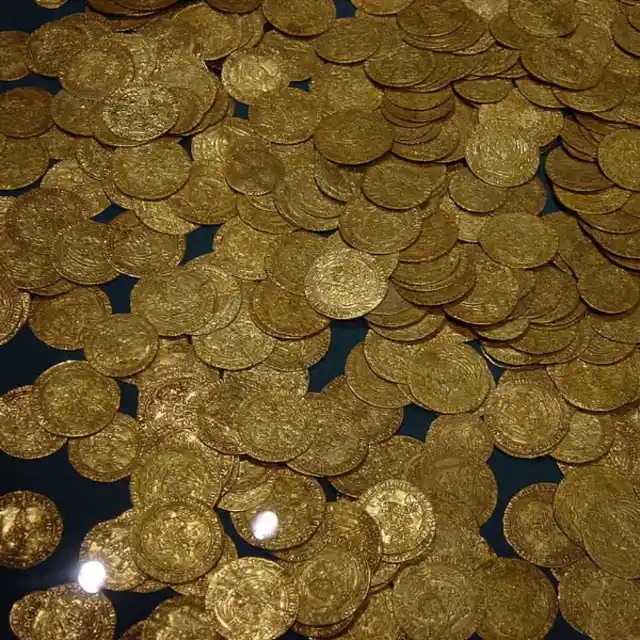

Melons or melons?
Melons were referred to as both the fruit and a code term for certain areas of a woman's anatomy in ancient Greece. Moreover, it was also a general word used for all fruits that were or appeared to be foreign.
Various gourds bearing fruit were referred to by the Greek word mēlopepon (gourd-apple). This meant that the meaning of this phrase differed widely depending on the context in which it was used. What makes us wonder is how they differentiated between the various meanings of the same word and how it may have led to some confusion in the past.


People Power
In a civic sense, ancient Greek citizens were quite powerful. They had a structure that allowed them to unite as a cohort and then send a politician into exile for ten years. Ostrakismos was a custom intended to protect the foundation of democracy.
Ostrakismos was a kind of punishment used against all politicians who, at the time, were viewed as both a real and prospective threat to Greek democracy. It's truly amazing to see how people in the past had such powerful rights and could easily deform any government. Even though this has its pros and cons, we are happy to see democracy growing.
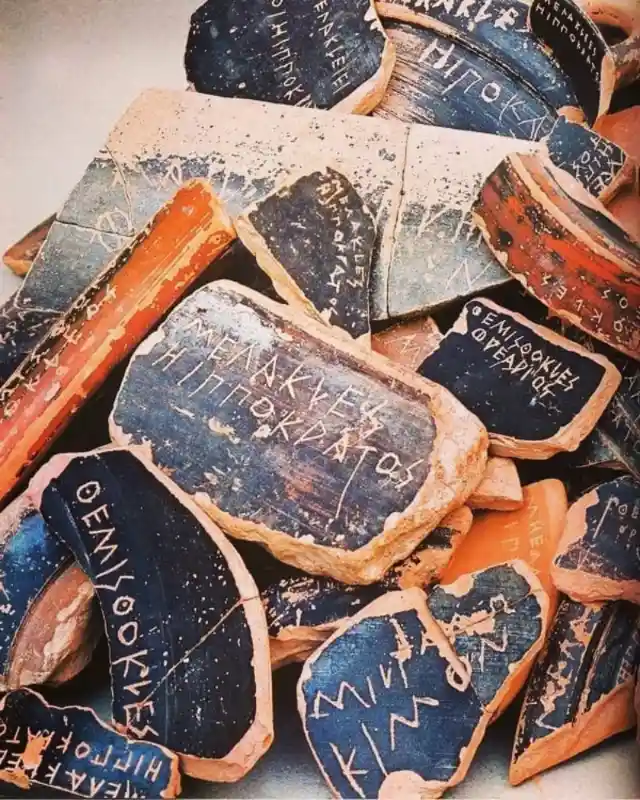
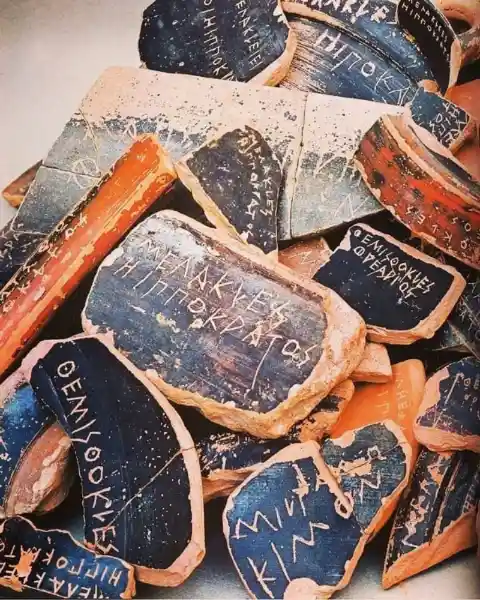
Kettlebells for strength
The Greeks were truly creative people; from inventing things like the computer and vending machines etc., they also created Kettlebells. A form of weight. A forerunner of a kettlebell called a Greek Haltere was found in 5th-century Greece that was used to push athletes in the long jump.
These kettlebells were used in Olympic competitions, and according to many studies, they ranged from two to nine kg in weight. However, a kettlebell at The Archaeological Museum of Olympia in Athens, Greece, weighs around 144 kg. A kettlebell of 144kg is surely enough to make anyone imagine what kind of a man-beast would have used a kettlebell this heavy.
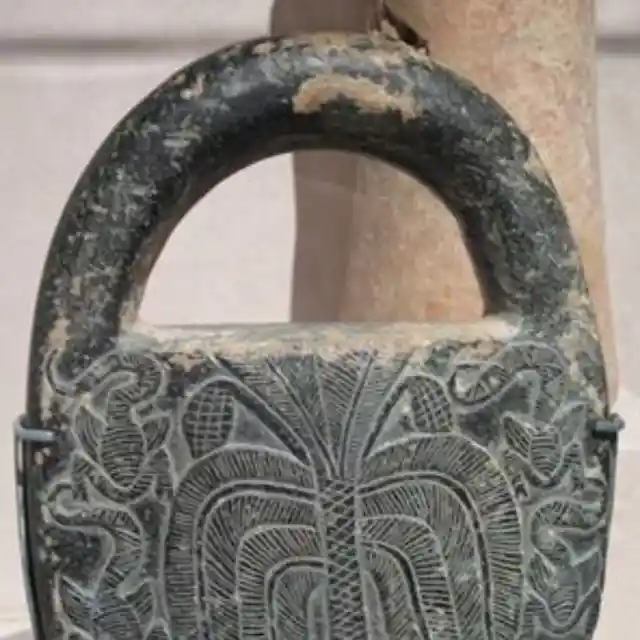
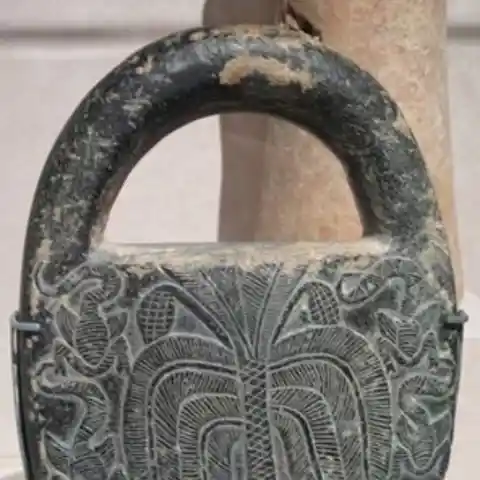
No toilet paper, oops
It is clear that the ancient Greeks lived a few millennia before the invention of triple-ply toilet paper. And it's only obvious to imagine what they used before toilet paper. Apparently, the ancient Greeks had quite a few unique instruments for the job, even though most societies discovered substitutes to our beloved toilet paper that were similar in form and characteristics, such as softness or something that was gentle on the skin etc.
The Greeks used stones, pottery items, and pebbles instead of what the majority of the ancient world used, that was, leaves, wool, sponges, and other materials that were similarly soft and more delicate on this skin.
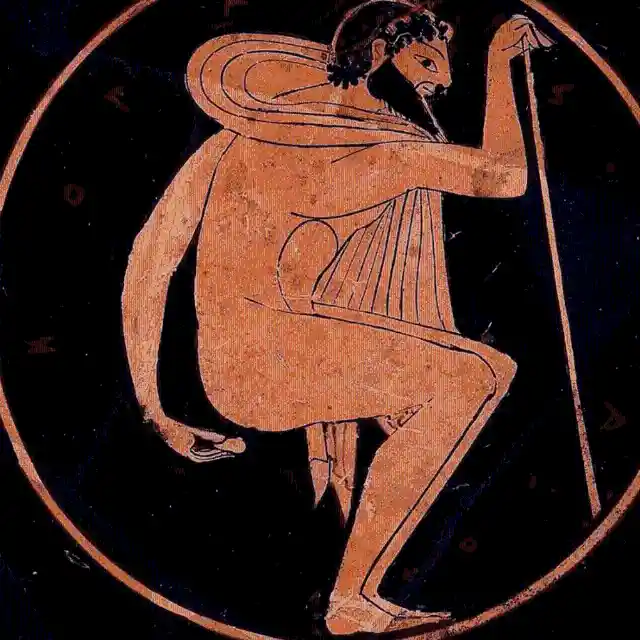
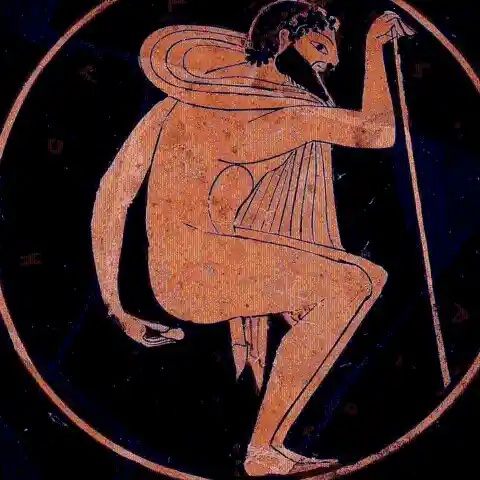
A colourful life
Based on the writing of the time and legend stories and, specifically, the famed Homer, who wrote the Iliad and Odyssey, it sounds like the ancient Greeks perceived colour differently than us. Or, at least, they talked about it differently.
So much so that, The University of Nottingham's Mark Bradly, an expert on ancient history, claims that the Greeks viewed colour as an object's visible exterior shell. Thus, the colour of the sky, the colour of the skin, the colour of the fire, and so forth. We wonder how they expressed the difference in the colour of the same objects but with different tones.
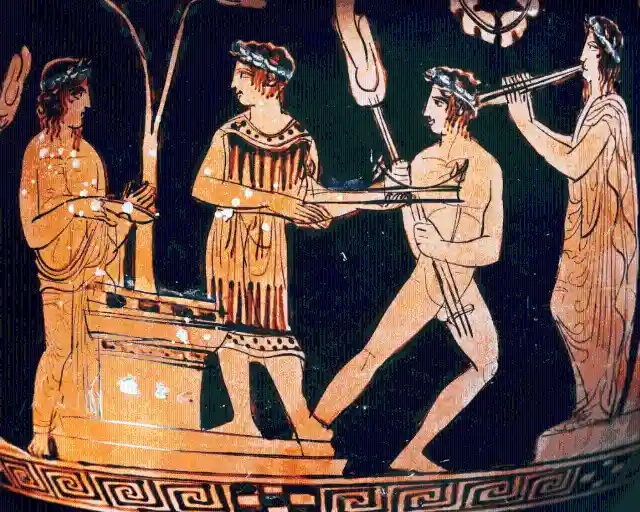
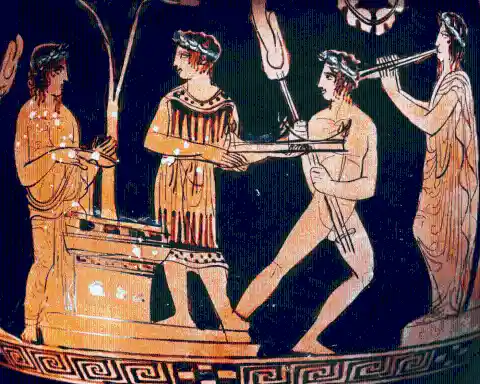
Perfect timing
Even though it may sound bizarre to us today, the Greeks actually used two different words to express various parts of time. The first Chronos functions very similarly to how we personally perceive time now. So, in general, it refers to the time that has been measured, like by a clock.
And the second is Kairos which is measured time in moments rather than seconds. It speaks more specifically of the appropriate or ideal time for something. As the entire globe hangs its breath, it is explained that anything can happen. Well, what may seem highly romantic still doesn't help us from wondering how people decided about a time to meet when they used to leave everything at the perfect moment.
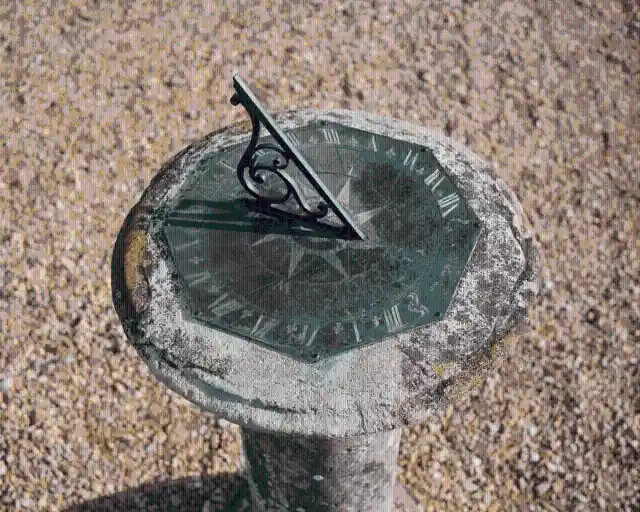

Long Luscious Hair
Hair wasn't just a status symbol for women in ancient Greece; males also took great delight in their spectacular beards and long, luscious locks. The Greeks would compete to see who had the best-groomed facial hair, much like the hipster culture of today.
Long, well-groomed beards were considered a sign of manhood and wisdom. However, losing hair was also perceived positively because it was associated with experience and wisdom. This is why busts of philosophers frequently had large beards and bald heads.


Say Cheesecake
Even though the Greeks didn't have quite the best and the most appetizing dishes, they were very fascinated by sweet delicacies. In actuality, the first cheesecake was created by the Greeks! They used flour, wheat, honey, and, of course, cheese to make their version of the popular cheesecake.
The rich, sugary cakes were utilized in wedding customs to celebrate elegance. The fact that the cheesy cakes were provided to athletes as energy snacks during the Olympics was more intriguing and made us wonder why that's no longer a tradition.


The statues
Beautiful Greek statues have long served as a status symbol for the wealthy and famous. Because of their exquisite carved white stone, they were frequently regarded as the height of artistic expression. In fact, they were so admired that the Renaissance sculptures made an effort to imitate the design.
However, we now know that statues in ancient Greece were actually richly painted with vivid colours and elaborate designs, thanks to contemporary imaging technology. Reconstructions done by historians and archaeologists give us an idea of how colourful these statues really must have been.
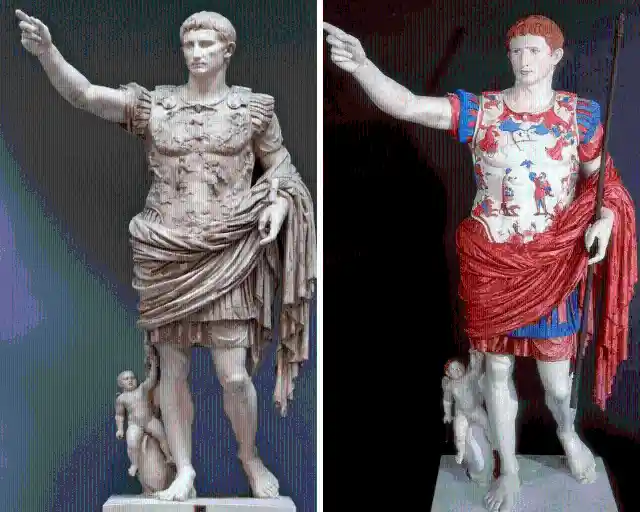
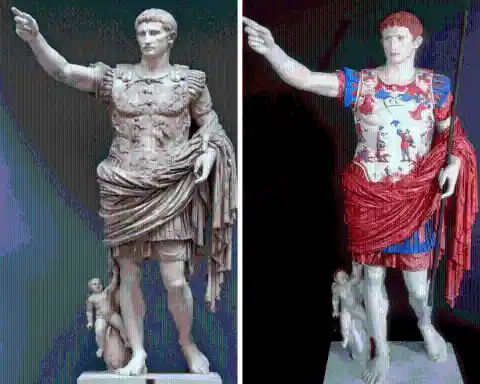
The world's first computer
Analogue computers have existed in the world for a lot longer than our current digital computers, which weren't even created until the 1970s. In actuality, Ancient Greece was home to the first computer. The amazing hand-powered contraption was given the name Antikythera mechanism inspired by the shipwreck it was found in.
The device, estimated to have been built in the second century B.C., was used to forecast eclipses and astronomical locations years in advance. It was extremely complicated for its time and employed gears as well. Only in the 14th century did machines of this intricacy reappear. Isn't it fascinating to see how people of such ancient years were so ahead of their time?


Oh the drama
The one thing we are sure everyone is thankful for is Theatre. The Greeks were one of the very first civilizations in the world to appreciate the art of storytelling, so much so that they developed an entire cultural movement around it. The Numerous plays created and performed by Greek theatre companies are still being performed today. Isn't it amusing how something so old and ancient, full of culture and heritage, can be preserved in the form of stage art?
The amphitheatre's ingenious construction was designed in an acoustically friendly shape to ensure that even people sitting far from the stage could clearly hear the actors who contributed to the Theatre's success, and the architectural style is still highly prevalent now.


Lesbians
The term Lesbos from The Island of Lesbos, is derived from the Greek word meaning woodland, which refers to the third-largest Greek island (or woody). However, the island is not famous for the wood but rather for the origin of the word "lesbian."
It's all because of Sappho, an island-born Greek poet. Sappho was a very well-known poet at the time; Plato famously referred to her as the "Tenth Muse." Her poetry about a woman lover is still studied and read, even today. And she is also the source of the phrase "sapphic love."
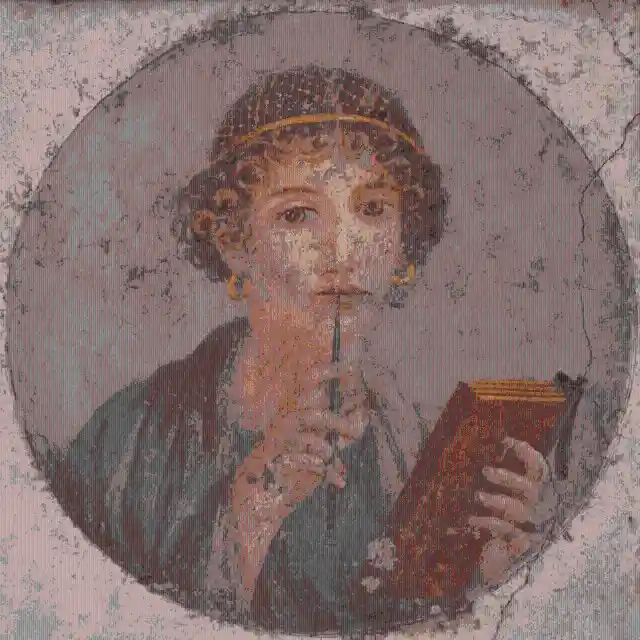

The Earth isn't flat
Ancient Greece was home to many scholars who studied mathematics, astronomy and geography. Contrary to popular opinion that the Earth was flat, they were aware that the Earth was, in fact, a sphere that spun through space. The first person to determine the circumference of the world is known as Eratosthenes of Cyrene.
He achieved this by referring to vast survey data that was available to him as a result of his position as the illustrious Library of Alexandria's chief librarian. And because of his geographic expertise, he was also the first mathematician to produce a global projection of the planet.
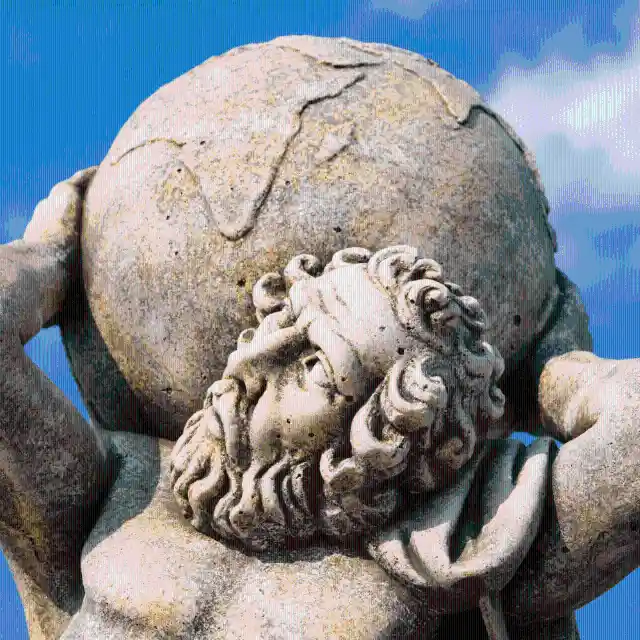
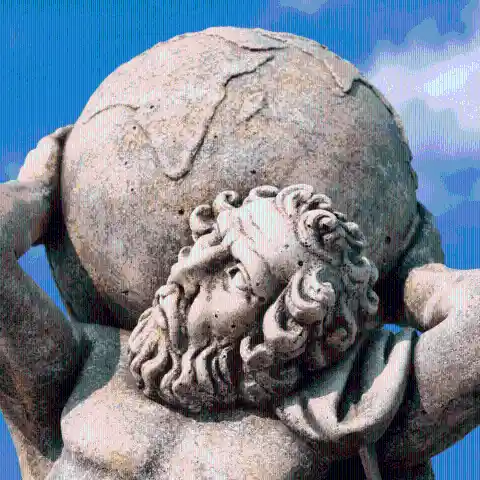
Some wine?
While drinking a full glass of wine today or holding the glass by the body is not as frowned upon in today's age and time. It was frowned upon to drink concentrated wine in ancient Greece.
One was required to fill their glass with water in a 3:1 ratio. People who didn't add water to their wine were considered as being morally corrupt and alcoholics. However, the potent mixtures were only used on special occasions that called for celebration.
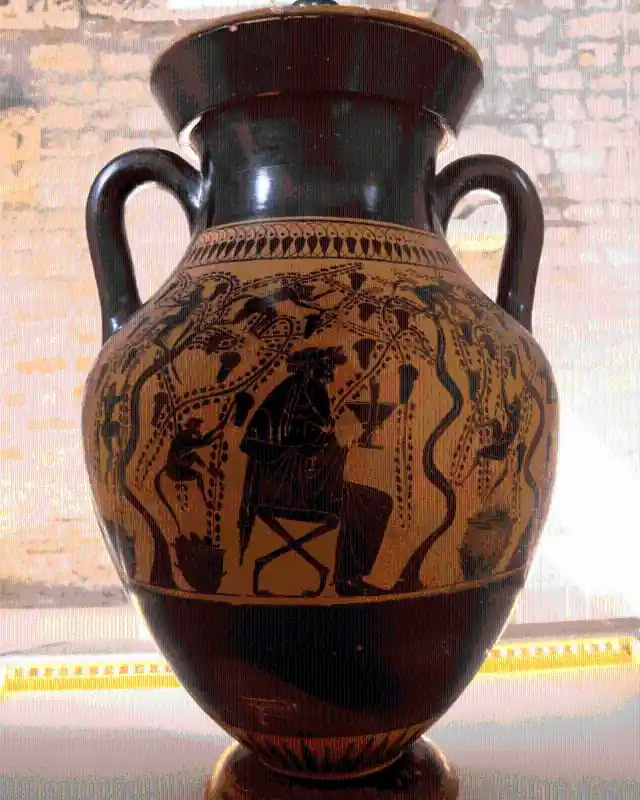
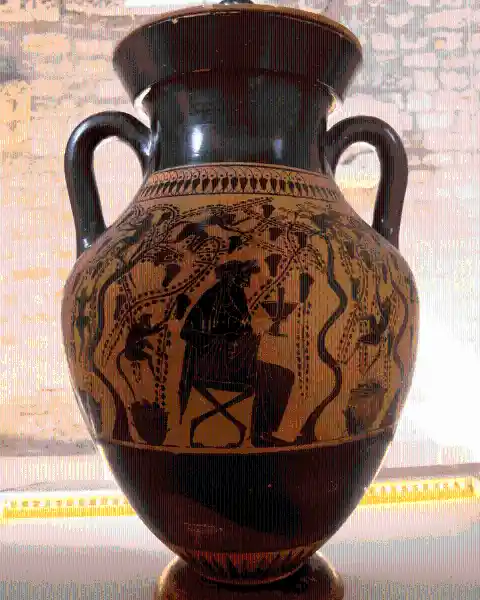
Slaves for salt
Slaves made up between 50 and 80 per cent of the total population in ancient Greece. As mentioned before, salt was commonly used as payment for slaves. Ancient Greek slaves had no autonomy and belonged entirely to their owners.
Aristotle considered them as a property that breathes. The frequent battles that used to occur were the cause of such a big population. According to a research estimate, one of the four inhabitants of Athens around 320 BC was a slave. Even though Greece is way past this time and age, it is mind-boggling how difficult life was for people in ancient times.
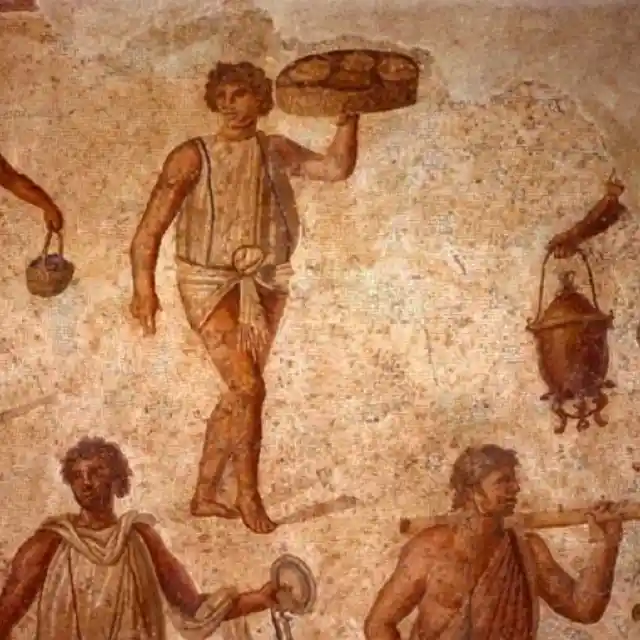
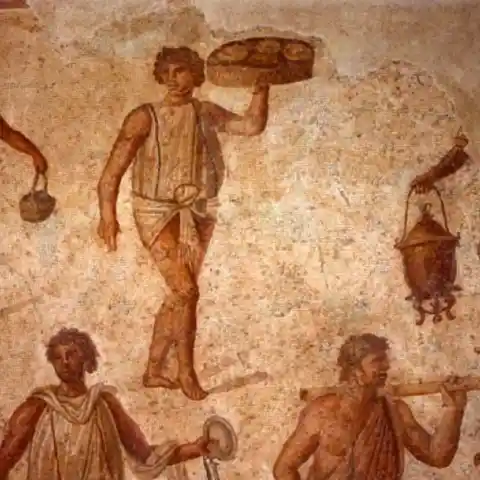
Brazen Bull's Victim
The Brazen Bull's creator, Perilaus of Athens, was tricked into becoming the victim of his own creation. In essence, Brazen Bull was a hollow statue. The hangman would light a fire beneath the bull once a man had gotten into it, burning him to death.
Phalaris, the king of ancient Greece, punished Perilaus for his invention. He had to give evidence that his idea was effective. He gave in and went into the bull's womb. He was saved just before he was burned to death. Later, though, he was pushed off a cliff. It's diabolical to think how a man would make a torture device to hurt people.
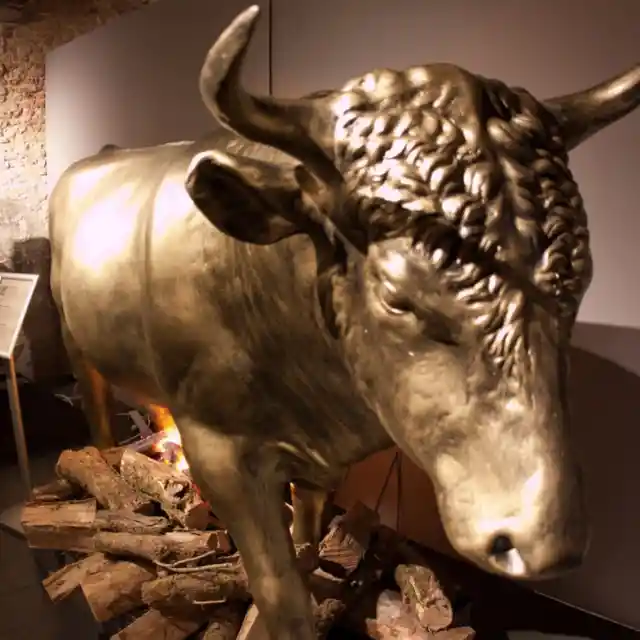

The Gymnasium
The ancient Greek gymnasiums were clothing-free spaces that were primarily male-dominated. The gymnasiums, which literally mean "a school for naked exercise," lived up to their name and were used by the athletes as a training ground.
The gods of the Greek Pantheon were respected by the ancient Greeks by competing in the nude. The gym was also a venue to engage in intellectual and social conversation. Whatever you may say, either the confidence level of ancient Greeks was very high, or they didn't mind being naked in front of a hall full of people. Whatever it may be, it sure is funny to think about.
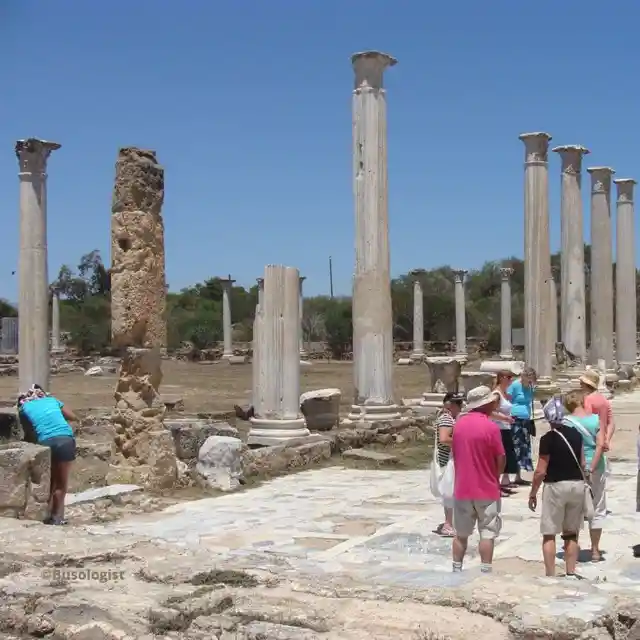
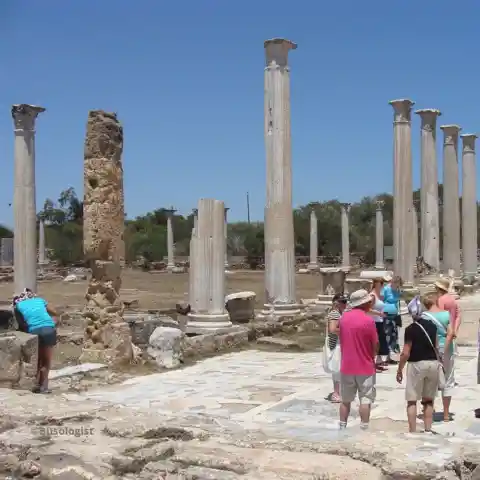
The glamour of the red carpet
The idea of red carpets originated in ancient Greece. It was earlier known as the Crimson (a shade of red) Path. Red carpets were thought to be a luxury reserved solely for the heavenly and not for mankind.
The ancient drama Agamemnon, which is the first in the trilogy of Oresteia plays, contains a description of the Crimson Path. Ancient Greeks believed that the colour red was holy and challenging to manufacture. It was made by extracting colours from the kermes insect. Well, now we know who stars look so heavily while walking down the red carpet.

